The statelessness of Rohingya children and the world’s responsibility
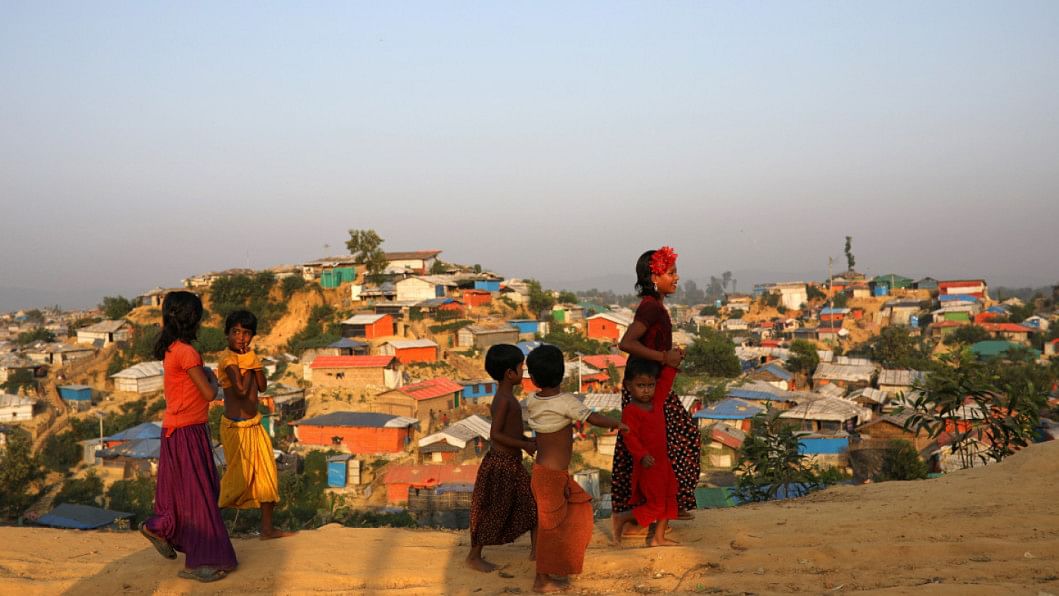
During a visit to one of the Child-Friendly Spaces inside a Rohingya camp in Cox's Bazar, I met a group of children who made me forget for a few moments the situation that brought them to the camp – the atrocities they had suffered. I was touched by their laughter, warmth, and liveliness. These spaces, set up by Save the Children, were set up in an effort to bring back a sense of normalcy to these children's lives. While observing their activities, I kept thinking about the uncertain future the Rohingya children face due to their statelessness.
A stateless person is someone "who is not considered as a national by any state under operation of its law." More than 15 million people are estimated to be stateless globally. They have no legal protection and are generally denied basic rights, such as education, healthcare, employment, housing, freedom of movement, political participation, etc. Stateless people are vulnerable to discrimination, exploitation and abuse, which includes arbitrary detention, forced labour, trafficking and violence.
Statelessness and children's rights
Children are dependent on the nurture and protection of their surrounding environment to survive and develop. In addition to individual carers, this environment consists of social, cultural and political structures that anchor their sense of belonging and well-being. One of the major building blocks of these structures is nationality. Not having a nationality can make it difficult for children to access some of the most fundamental rights – e.g. birth registration, education, healthcare, family life, adequate standard of living, social security, etc.
According to Article 7 of the United Nations Convention on the Rights of the Child (UNCRC), children should be registered immediately after birth and have the right from birth to acquire a nationality. The principle of the best interests of the child (enshrined in Article 3 of the UNCRC) gives them the right to have their best interests assessed and considered in all actions or decisions affecting their life. Statelessness is contrary to that principle.
The 1954 Convention Relating to the Status of Statelessness Persons provides important minimum standards for treating stateless people. The 1961 Convention on the Reduction of Statelessness is important regarding the right of every child to acquire a nationality. Under this convention, states must grant nationality to children who would otherwise be stateless and have ties with them through either birth on the territory or descent.
Rohingya children often struggle to access birth registration, which means they have no official records regarding their existence. This makes them vulnerable to abuse and exploitation, prevents them from exercising other rights, and receiving legal recognition and protection as children.
The most persecuted minority in the world
In 1982, the Rohingya were arbitrarily stripped of their Burmese citizenship through the passing of a citizenship law. Children born subsequently to Rohingya parents are also deprived of their right to a nationality. The Rohingya population in Myanmar have been continuously deprived of their fundamental human rights. The UN has described the Rohingya as "the most persecuted minority in the world."
Over a million Rohingya have fled violence in Myanmar since the 1990s. Their largest and fastest exodus began in August 2017. This forced more than 742,000 Rohingya to seek refuge in Bangladesh, the majority of whom were women and children. Around 90 percent Rohingya people who had already left Myanmar live in Bangladesh and Malaysia. Some also live in Myanmar, Indonesia, Thailand, India and several other countries.
How statelessness affects the rights of Rohingya children
As many as 700,000 Rohingya children live in five countries (Myanmar, Bangladesh, Malaysia, Thailand and Indonesia). None of these countries have ratified the 1951 Refugee Convention, the 1954 Convention Relating to the Status of Statelessness Persons, and the 1961 Convention on the Reduction of Statelessness. But all have ratified the UNCRC, which means they have certain obligations to prevent the statelessness of children.
Rohingya children often struggle to access birth registration, which means they have no official records regarding their existence. This makes them vulnerable to abuse and exploitation, prevents them from exercising other rights, and receiving legal recognition and protection as children. As they grow up, they are unable to acquire other important identity documents such as national IDs. This affects their future prospects, limits their freedom of movement, and they find themselves in a vicious cycle of poverty and marginalisation.
Rohingya children struggle to access comprehensive, quality education. The reasons for this are varied. In Myanmar, Rohingya children face strict restrictions on accessing formal education. This includes restrictions on the movement of the Rohingya, the government teachers' reluctance to teach in Rohingya schools, and intercommunal fear and distrust. In Bangladesh and Malaysia, Rohingya children are not allowed access to formal education. They rely on UN agencies, NGOs and local communities to provide informal education. Thailand and Indonesia have policies that ensure that refugee and undocumented children can access education at all levels. However, there are challenges in implementation.
While primary level education is usually more available for Rohingya children, secondary level students struggle to continue studies. This is due to a lack of schools and limited financial resources. Even when children have access to secondary schools, education is often not accredited. This means these children leave school with no officially recognised qualification.
The UNHCR Education Strategy 2012-2016 articulated an approach of including refugee students in educational structures of the host countries instead of isolating them in parallel systems. The 2018 Global Compact on Refugees, the Comprehensive Refugee Response Framework, and the 2019-2030 UNHCR Education Strategy have further codified it. The approach of including refugees in national education systems is described in global instruments as "responsibility sharing." But it can only be such if it includes financial support from the developed countries to the low- and middle-income countries that host most of the refugees. Over the past decade, an average of less than two percent of all humanitarian funding was allocated to education. Without funding, the integration approach places the responsibility of refugee education on the host countries. It is important to ensure the accountability of the host countries as well as the countries of Global North, so that refugee children can realise their right to education. This is relevant for the education of Rohingya children as well.
How to end the statelessness of Rohingya children
One of the goals of the UNHCR Global Action Plan to End Statelessness (to be achieved by 2024) is that all states have a provision in their nationality laws to grant nationality to stateless children born in their territory, children of unknown origin found in their territory, and children born to nationals abroad who are unable to acquire another nationality. Myanmar, Bangladesh, Malaysia, Thailand and Indonesia should do the following to end the statelessness of Rohingya children and contribute to realising their rights:
* The states should give all Rohingya children born in the country access to universal birth registration. The states should immediately grant citizenship status to children born in the country who would otherwise be stateless. The states should take effective steps to register children born in the country whose births have not yet been officially registered.
* The states must introduce full legal safeguards in their nationality laws to ensure that childhood statelessness is prevented.
* The states should take measures so that all Rohingya children are able to access comprehensive, quality, accredited, and inclusive education. Donors should provide the required funding for education of Rohingya children.
* The states should recognise child protection activities as lifesaving services and ensure that UN agencies and NGOs have full access to communities in need. In addition to education, donors should provide adequate funding for child protection interventions.
* The states should ratify the 1951 Refugee Convention, 1954 Convention Relating to the Status of Stateless Persons, and the 1961 Convention on the Reduction of Statelessness. Measures should also be taken to incorporate their provisions into domestic law and there should be initiatives to implement them fully in policy and practice.
States can end the statelessness of Rohingya children if they want to. Do they have the required political will to make that happen?
Laila Khondkar, an international development worker, is currently studying Mid-Career Master in Public Administration at John F. Kennedy School of Government in Harvard University.

 For all latest news, follow The Daily Star's Google News channel.
For all latest news, follow The Daily Star's Google News channel. 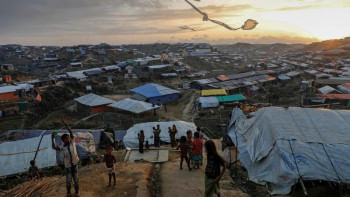



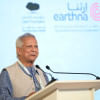
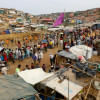

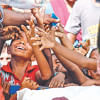



Comments